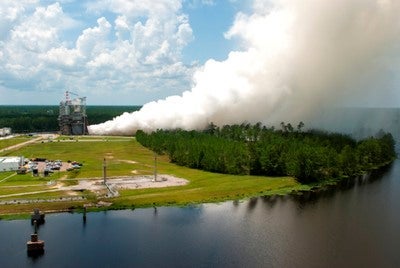
Aerojet Rocketdyne and Nasa have tested a second RS-25 development engine, which will power the space agency’s new Space Launch System (SLS) rocket in deep space missions.
The 650s-long test has been performed at Nasa's Stennis Space Center in Mississippi, US.
Since last year, Aerojet Rocketdyne resumed RS-25 engine testing to ensure that the engines and their improved controllers meet the difficult requirements of SLS for its first flight scheduled in 2018.
The latest engine test has been conducted to collect critical performance data and provided an additional engine sample for overall evaluation.
Aerojet Rocketdyne Nasa programmes vice-president Jim Paulsen said: "During flight, the RS-25 engines will endure more heat, pressure and thrust on SLS than on the space shuttle.
“Four RS-25 engines will fly at the bottom of the SLS core stage with each operating at 109% power level, as opposed to three on the space shuttle operating at 104.5% power level.
How well do you really know your competitors?
Access the most comprehensive Company Profiles on the market, powered by GlobalData. Save hours of research. Gain competitive edge.

Thank you!
Your download email will arrive shortly
Not ready to buy yet? Download a free sample
We are confident about the unique quality of our Company Profiles. However, we want you to make the most beneficial decision for your business, so we offer a free sample that you can download by submitting the below form
By GlobalData“The solid rocket booster motors will also be closer in position to the RS-25 engine cluster this time around, and the taller core stage will result in higher propellant inlet pressure on the engine system. All of this adds up to multiple ground tests to ensure astronaut safety."
The recent engine test and four future scheduled firings in the current series is focused on the new engine controller and higher operating parameters.
The next RS-25 engine’s developmental test is scheduled to be held at Stennis on August 18.
Image: The RS-25 engine test at Nasa's Stennis Space Center in Mississippi, US. Photo: courtesy of Nasa.


